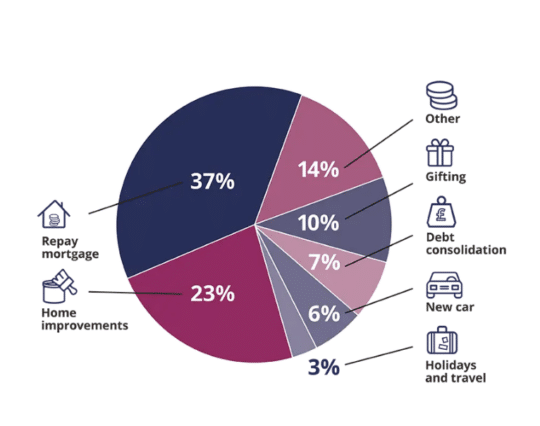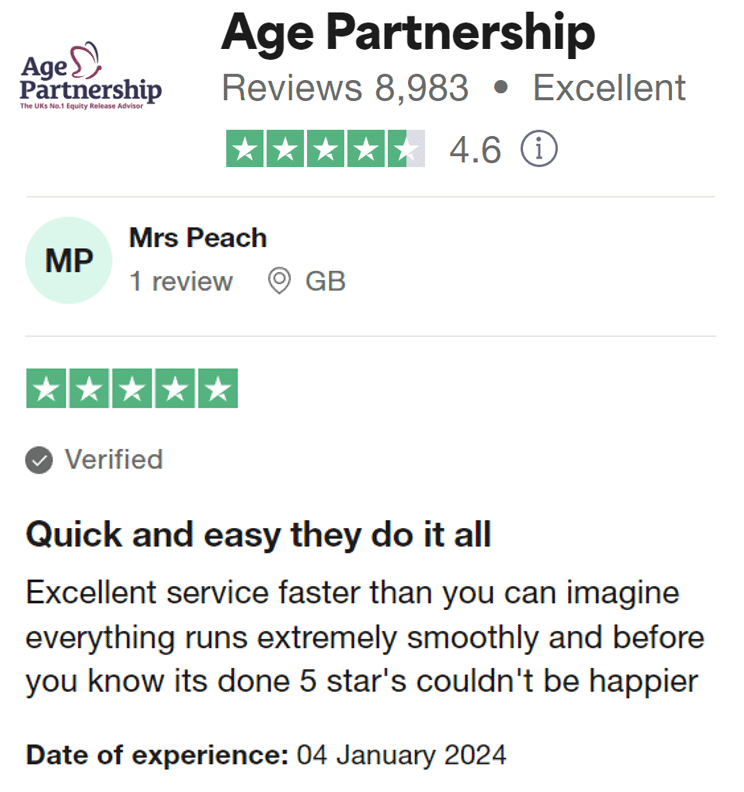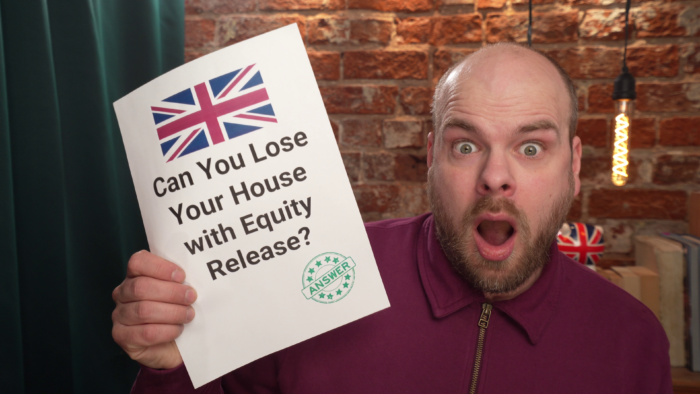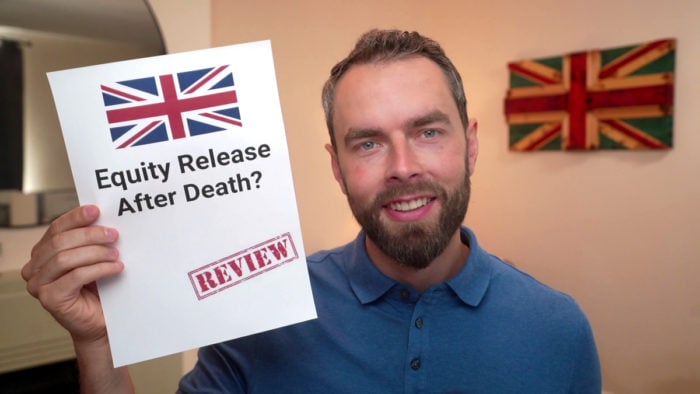Can You Get Equity Release Without a Job in the UK?
Our preferred equity release adviser is Age Partnership. For free and impartial money advice you can visit MoneyHelper.
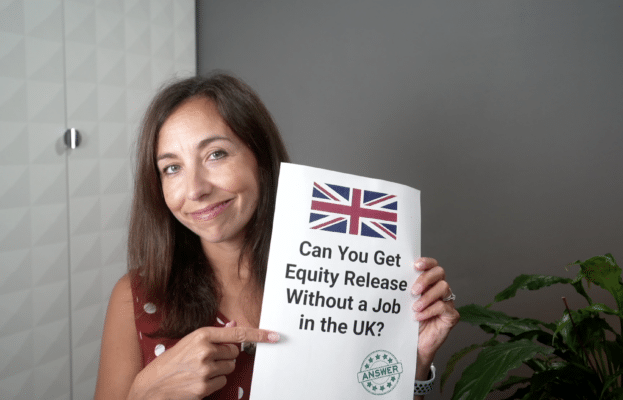
Our preferred equity release adviser is Age Partnership. For free and impartial money advice you can visit MoneyHelper.
Equity release provides homeowners with a cash-lump sum by freeing up money in their property. While you don’t need a job to apply for equity release, there are other factors that need to be taken into consideration.
Do you need a job for equity release?
No, you don’t need a job for equity release. In fact, you don’t need to have any kind of income at all. Regular mortgages need monthly payments, whereas equity release does not. With equity release, the loan is paid off once the property is sold, if the last remaining homeowner goes into long-term care, or when they pass away.
Equity release can be useful for older people who may be nearing retirement or have stopped working.
While your income doesn’t affect your ability to get equity release, lenders will still ask to see what your monthly income and outgoings are. This is mostly to ensure you’re given the right type of equity release plan.
So should I take out an equity release if I don’t have a job?
Not necessarily. There are other things to consider when taking an equity release while not working. If you receive benefits, for example, equity release can have an impact on them. You also need to think about what kind of plan you take before agreeing to anything.
Means-tested benefits include:
- Council Tax Reduction
- Universal Credit
- Child Tax Credit
- Housing Benefit
- Income Support
- Income-based Jobseeker’s Allowance (JSA)
- Income-related Employment and Support Allowance (ESA)
- Working Tax Credit
- Pension Credit
If you receive any of these benefits, taking an equity release could affect your ability to claim them. This is because the cash paid to you when you take an equity release is classified as a loan rather than an income.
However, as long as the money is designated for a specific purpose, it probably won’t be considered savings.
But there is a caveat…
If the money is sat in your bank account for a long time, it could be considered as savings. This means you could lose your entitlement to means-tested benefits. This is where what type of plan you have could be very helpful.
What is drawdown equity release and how could it help me if I’m on benefits?
A drawdown equity release plan allows homeowners to take a lump sum of cash and place it into a reserve facility. The homeowner is only charged interest on the funds they take from the facility, not the amount in there. You can usually take minimum amounts of £500 or £2000, but this will depend on your plan.
In most cases, this facility is not considered as savings and will not affect your benefits.
How equity release could help
More than 2 million people have used Age Partnership to release equity since 2004.
How your money is up to you, but here’s what their customers do…
Find out how much equity you could release by clicking the button below.
In partnership with Age Partnership.
What are the benefits of using equity release if I’m not working?
There are three main benefits that you could take advantage of if you’re not working.
Access funds when you’re unable to get a mortgage or a secured loan
Mortgages and secured loans are assessed on affordability, and if you don’t have a job you may find it difficult to obtain either of them. Because equity release isn’t affordability assessed, you can use equity release to access funds you wouldn’t otherwise be able to because it’s based on your age and property value.
Clear off your mortgage faster
For many people in the UK, their mortgage is one of their most expensive outgoings. You can use equity release to pay off your mortgage faster, either completely or a significant amount, making repayments smaller and much easier to manage.
Unlike with a mortgage, you do not have to make payments to pay back your equity release. The loan is cleared if you sell your home, move into long-term care, or when you pass away.
Supplementing your income
Drawdown plans can be a great way to keep your income steady while you either look for work, reach retirement age, or help top up funds when you are retired.
Are there any risks of taking an equity release without a job?
Like with any kind of loan, equity release comes with its risk. The largest risk may be that taking an equity release will affect your means-tested benefits, but you also need to think about whether the funds will be enough to cover everything in the long term.
I’d recommend speaking with a qualified equity release advisor to discuss having an equity release without a job. They will be able to advise you about the amounts and how to best manage your money.
Note: this is where a drawdown plan could be beneficial because lenders do not charge interest on the amount held until you withdraw it.
Join thousands of others who release equity
Age Partnership have helped over 2 million people release equity from their home.

Mrs Wareham
“I am more than pleased to have taken out Equity Release with Age Partnership.”
Reviews shown are for Age Partnership. Search powered by Age Partnership.
What is equity released based on?
Now we’ve determined that your income does not affect your ability to get equity release, you may be wondering what factors affect your application.
They are based on two main factors:
- The value of your property
- The age of the youngest homeowner (you need to be at least 55)
The amount of equity you can release is based on the value of your home, which is also referred to as Loan to Value (LTV). The LTV is based on the youngest homeowners’ age, meaning the older the homeowner, the higher the LTV ratio is, meaning you can release more money from your property. However, a higher LTV will mean a higher interest rate.
There are also other factors which affect how much you can take out, such as:
-
Your property type
You’ll be able to release more from a house rather than a flat. -
Your country
Most of the UK has access to all equity release products. However, Northern Ireland is restricted to certain lenders. -
Your postcode
Equity release lenders will use this to assess how much they’re willing to offer you and also your eligibility. -
Your medical history
Some equity release plans offer medical enhancements for those with life-shortening illnesses. This can allow you to release more with lower interest rates.
Should I try and work or get an equity release?
If you’re able to work, it might be better because with equity release you’re charged interest on the money you withdraw. However, if you can’t work or want to retire, equity release can be a great way of accessing tax-free cash. Again, your equity release advisor can help lay all of the information out for you so that you can make an informed decision.
It’s crucial to reflect on the lasting effects of equity release on your estate, including the potential inheritance for your beneficiaries.
Many plans extend over numerous years, leading to substantial interest accumulation. Every equity release projection will indicate the anticipated duration of the plan from the lender’s perspective, along with the accumulating interest, assuming you refrain from making any payments.
